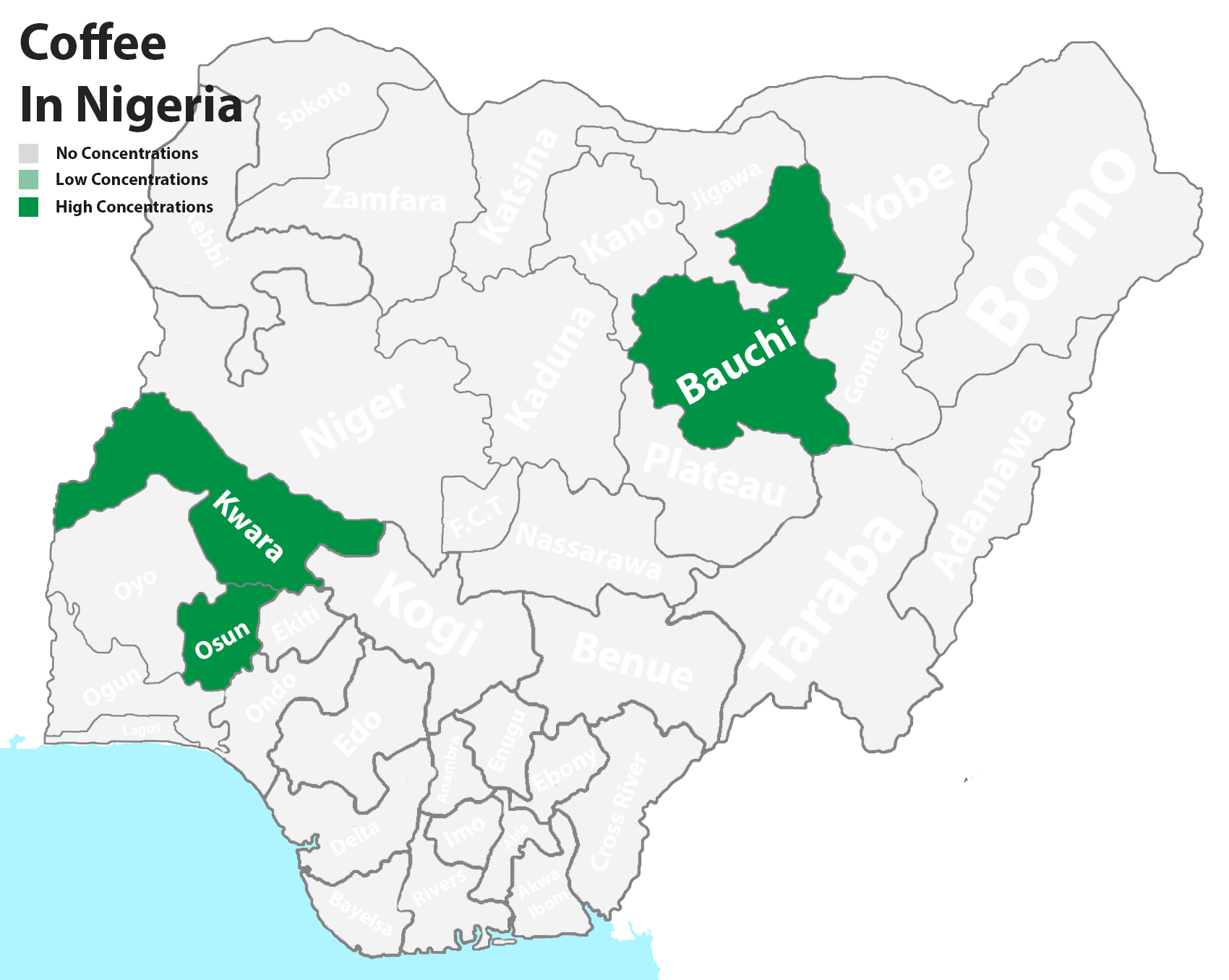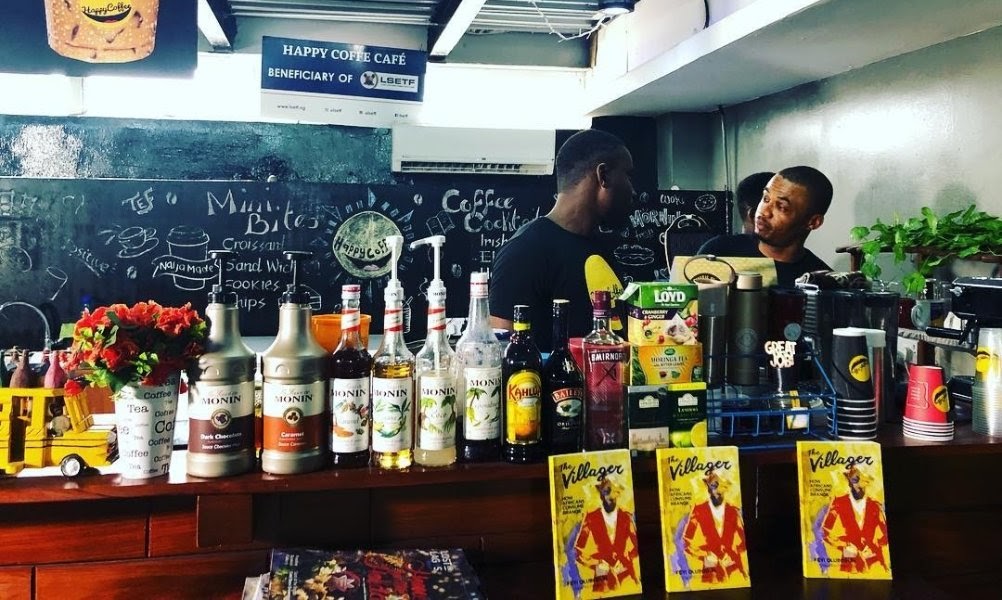Flavor and taste characteristics of Arabica coffee beans in Nigeria and coffee bean producing countries in Africa
Arabica coffee production in Nigeria
Although Robusta coffee accounts for most of the country's coffee, a small number of small farmers in Nigeria have begun to grow higher-quality Arabica coffee. However, due to lack of awareness, limited market access and very small harvests, there is little reason to grow it.
Arabica coffee is grown only in two states: the Kros River and Talaba. According to a source, about 110 different varieties of Arabica coffee are currently being tested in the Mambilla plateau in Talaba, although the exact varieties used are not clear.
Because the amount of information about Nigerian Arabica coffee is very limited, there is no flavor characteristic of universal attribution. However, Princess says Happy Coffee's "Nigerian blended coffee" is grown in Talaba with chocolate and fruit flavors and floral scents.
Mai Shayi is another coffee brand springing up in Nigeria. It sells a range of high-altitude coffee, many of which are sweet and fruity.
Interestingly, as early as the early 1900s, seed stocks purchased by producer Mai Shayi were introduced into the Nigerian Highlands from Jamaica.

The Future of Nigerian Coffee
First of all, it is pointed out that there must be government intervention in the industry to make real progress.
If there is no coffee association to encourage and raise production standards, she says things will not change.
"We want to see more agricultural centralization and the empowerment of female producers," she said.
However, some progress has been made on the horizon. The bill establishing the National Tea and Coffee Development Commission has been passed through the Nigerian National Assembly. If approved, this could be the driving force needed by the Nigerian coffee industry.
Princess told me that she was also actively involved in the development of a new data platform to support local coffee farmers. The platform was established in partnership with African Exchange Holdings (AFEX), a private commodity trading company based in Abuja.
According to its website, AFEX specializes in setting up commodity exchanges online and providing warehousing services for African farmers. Over time, perhaps an initiative like this could lead to the development of centralized commodity exchanges and a formal system for marketing and trading Nigerian coffee.

It is clear that change is necessary if Nigeria's coffee industry is to grow in the future. Entrepreneurs like Princess are leading the trend, but government intervention is still essential.
She concluded: "We should invest in Nigerian coffee because it has a future." There's work to be done.
"once we have a road map and national policies with private sector participants, things will start to get better."
Important Notice :
前街咖啡 FrontStreet Coffee has moved to new addredd:
FrontStreet Coffee Address: 315,Donghua East Road,GuangZhou
Tel:020 38364473
- Prev

Other uses and benefits of coffee cherries Cascara Cascala Tea Coffee Pulp is good for Health?
Other uses and benefits of coffee cherries the use of coffee fruits is not only better for the environment, but also has impressive health benefits. It is rich in antioxidants and can provide you with solid health promotion. Some innovative coffee producers will not stop at Cascala tea. Nowadays, coffee fruits are used to produce different products, such as butter, chocolate and even popsicles.
- Next

Nigerian Coffee Trade and Marketing the impact of Nestl é instant on Nigerian coffee consumption
Unlike major African coffee producing countries such as Ethiopia and Kenya, Nigeria has no centralized coffee exchanges of any type and no formal coffee trading system. In addition, a small number of buyers of Nigerian coffee are often unable to promise to buy the entire harvest of a farm, which can only lead to further instability. Due to lack of government
Related
- Detailed explanation of Jadeite planting Land in Panamanian Jadeite Manor introduction to the grading system of Jadeite competitive bidding, Red bid, Green bid and Rose Summer
- Story of Coffee planting in Brenka region of Costa Rica Stonehenge Manor anaerobic heavy honey treatment of flavor mouth
- What's on the barrel of Blue Mountain Coffee beans?
- Can American coffee also pull flowers? How to use hot American style to pull out a good-looking pattern?
- Can you make a cold extract with coffee beans? What is the right proportion for cold-extracted coffee formula?
- Indonesian PWN Gold Mandrine Coffee Origin Features Flavor How to Chong? Mandolin coffee is American.
- A brief introduction to the flavor characteristics of Brazilian yellow bourbon coffee beans
- What is the effect of different water quality on the flavor of cold-extracted coffee? What kind of water is best for brewing coffee?
- Why do you think of Rose Summer whenever you mention Panamanian coffee?
- Introduction to the characteristics of authentic blue mountain coffee bean producing areas? What is the CIB Coffee Authority in Jamaica?

